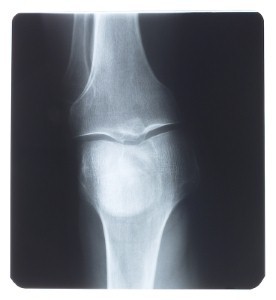Increased vitamin D intakes may reduce Alzheimer’s risk

The highest average intakes of the sunshine vitamin were associated with a 77% decrease in the risk of Alzheimer’s, report researchers in the The Journal of Gerontology: Medical Science.
“To the best of our knowledge, the present study is the first one to use a prospective design, allowing us to conclude that the low consumption of vitamin D precedes the onset of Alzheimer’s disease, although eating lots of vitamin D rich foods is associated with a lower risk of developing Alzheimer’s disease,” wrote researchers led by Cedric Annweiler from Angers University Hospital.
The build-up of plaque from beta-amyloid deposits is associated with an increase in brain cell damage and death from oxidative stress. This is related to a loss of cognitive function and an increased risk of Alzheimer's, the most common form of dementia and currently affects over 13 million people worldwide.
The direct and indirect cost of Alzheimer care is over $100 bn (€81 bn) in the US, while direct costs in the UK are estimated at £15 bn (€22 bn).
Study details
The French researchers analyzed data from 498 women with an average age of 79.8 who did not take vitamin D supplements. Dietary intakes of the vitamin were assessed using food frequency questionnaires (FFQ).
The women were followed for seven years, after which the researchers found that women with lower vitamin D intakes (50 micrograms per week) at the start of the study had a greater risk of developing Alzheimer’s, compared with women with higher intakes (59 micrograms per week).
In addition, the highest average intakes of vitamin D were associated with a lower risk of Azheimer’s, compared with lower intakes.
Commenting on the potential mechanism of protection, Annweiler and his co-workers said that vitamin D has been linked to hippocampus protection in rodents, or by influencing the production and clearance of beta-amyloid proteins.
The potential brain benefits of the vitamin may also be linked to the nutrient content of vitamin D-rich foods, such as fish. “In particular, there is reasonably good evidence that eating fish reduces the risk of dementia including Alzheimer’s.
“This effect is generally attributed to the omega-3 polyunsaturated fatty acids even if data are conflicting.”
Sunshine vitamin
Vitamin D refers to two biologically inactive precursors - D3, also known as cholecalciferol, and D2, also known as ergocalciferol. Both D3 and D2 precursors are transformed in the liver and kidneys into 25- hydroxyvitamin D (25(OH)D), the non-active 'storage' form, and 1,25-dihydroxyvitamin D (1,25(OH)2D).
While our bodies do manufacture vitamin D on exposure to sunshine, the levels in some northern countries are so weak during the winter months that our body makes no vitamin D at all, meaning that dietary supplements and fortified foods are seen by many as the best way to boost intakes of vitamin D.
Vitamin D deficiency in adults is reported to precipitate or exacerbate osteopenia, osteoporosis, muscle weakness, fractures, common cancers, autoimmune diseases, infectious diseases and cardiovascular diseases. There is also some evidence that the vitamin may reduce the incidence of several types of cancer and type-1 and -2 diabetes.
Source: The Journal of Gerontology: Medical Science.
Published online ahead of print, doi: 10.1093/gerona/gls107
“Higher Vitamin D Dietary Intake Is Associated With Lower Risk of Alzheimer’s Disease: A 7-Year Follow-up”
Authors: C. Annweiler, Y. Rolland, A.M. Schott, H. Blain, B. Vellas, F.R. Herrmann, O. Beauchet
















